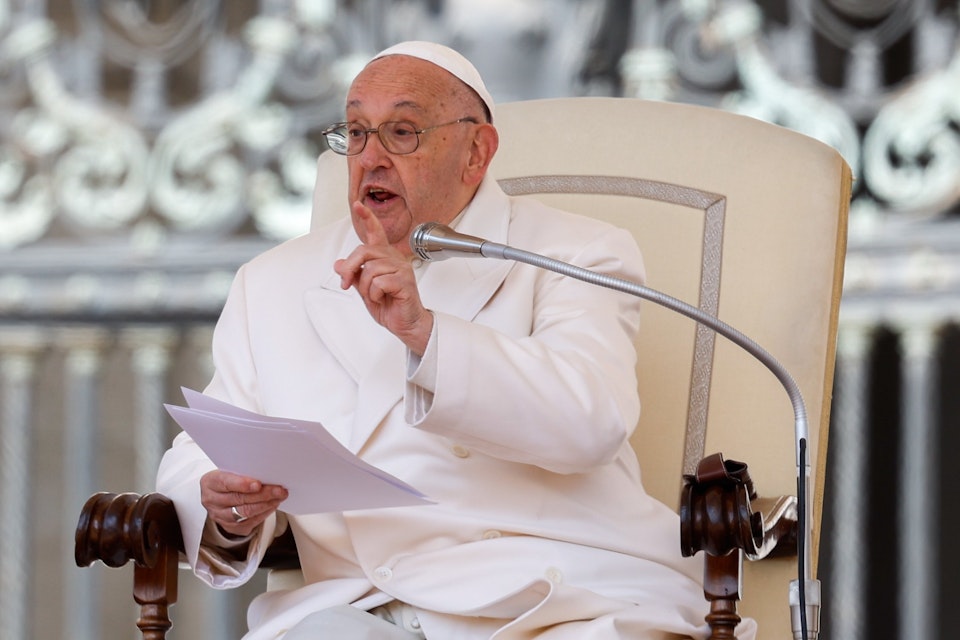The roots of 'Pączki Day' may have long been forgotten, but the evangelistic nature of the tradition remains intact
HAMTRAMCK — New Orleans’ Mardi Gras has nothing on “Pączki Day” in Hamtramck.
The tiny enclave north of Detroit's downtown, which was once predominately Polish (although now, as of 2017, the number had plummeted to around 10 percent) becomes the center of attention once a year on the Tuesday before Ash Wednesday.
Traditionally known as Fat Tuesday or Mardi Gras, it’s called “Pączki Day” in Hamtramck in honor of the sweet, fried and stuffed pastry that dominates the day. New Palace Bakery, one of Hamtramck's bakeries that specializes in Polish pastries, prepares for days, anticipating the lines of people out their door, which opens at 3 a.m. on Fat Tuesday.
You don’t have to be Catholic to celebrate and enjoy Pączki Day, and in fact, most of the people that Detroit Catholic spoke to were unaware of the Catholic origins of the pączki.


According to Suzy Ognanovich, one of the owners of New Palace, the pastry is an age-old traditional recipe that originated in Poland.
While it doesn't matter how the day has been appropriated or who celebrates it, people gathered from far and wide Feb. 25, waiting in line in the cold and misty rain for hours to savor their deep-fried tasty pastry. Strangers bonded in their shared discomfort in the cold and their anticipation for dessert at 8:30 a.m.
The feeling in the crowd doesn't have the mob-like energy of Black Friday; rather, there is a spirit of generosity and joy more akin to what is known as the “Christmas spirit.” The pączki, in all its triple-digit caloric glory, remains an indirect Catholic opportunity for evangelization.
According to Suzy Ognanovich, one of the owners of New Palace, the pastry is an age-old traditional recipe that originated in Poland. Mothers and grandmothers, desperate to empty their pantries in anticipation for fasting in Lent, tossed together all their flour, butter, lard, sugar, and jams, creating one final savory pleasure before 40 days of sacrifice began.
While traditional flavors abound such as the rose jam pączek or the custard-filled ones, New Palace offers a variety of unique flavors including the brand-new pretzel and beer pączki.
The line outside of New Palace Bakery was a mix of people who have been doing this for decades as well as those who are new to the tradition and are just simply about the hype.
Ray Carlson stood in line for hours and has done so for the last 20 years. He waits in line on behalf of his wife of 51 years, with a list of pączki that she wants.
“It is something that we do — we do it every year,” Carlson said. “It's about the family memories, so I stand in line and bring them home.”
Carlson was accompanied by his nephew, Lance Granata. As they stood in line, they befriended Marti Jablonski, who was waiting in line to get a paczki for her daughter. The three bonded over the shared experience.

“I am really just here for this experience and to meet people,” Granata said. “I am not even a pączki fan.”
Moreover, one thing is for certain: this doughy pastry is a warm, tasty reminder of tradition.
When asked what tradition means to them, people in the line struggled to answer. However, as intangible as the meaning might be, they all agreed on one universal understanding of tradition — tradition means community, family-time, camaraderie with strangers and a commonality that even if pączki aren’t really worth all the hype (their words), what they represent and the life and fun around “Pączki Day” is worth it.
Ken Morgulac, a parishioner and catechism teacher at St. Mary Parish in St. Clair, has brought a different friend with him each year for the past 30 years to accompany him as he waits in line to pick up pączki.
“It can be evangelistic, especially if you talk about (faith),” Morgulac said. “Honestly, that is kind of why I am doing it — it gives me a chance to talk about my faith with some other people.”

Ken Morgulac, a parishioner and catechism teacher at St. Mary Parish in St. Clair, has brought a different friend with him each year for the past 30 years to accompany him as he waits in line to pick up pączki.

Morgulac said that even just the long wait itself can be a representation of how faith isn’t always easy, but there is a good worth waiting for.
And while Morgulac seems to share the common perspective that pączki are great, but not that great, the tradition and camaraderie keeps him coming back.
“I think traditions are good for families,” Morgulac said. “Just like sitting at the dinner table; if you can, do it because the time you spend together you will never regret.
“That’s what we have to do for our whole lives — love one another — that’s what Jesus told us to do. That is one thing that brings people together here.”











